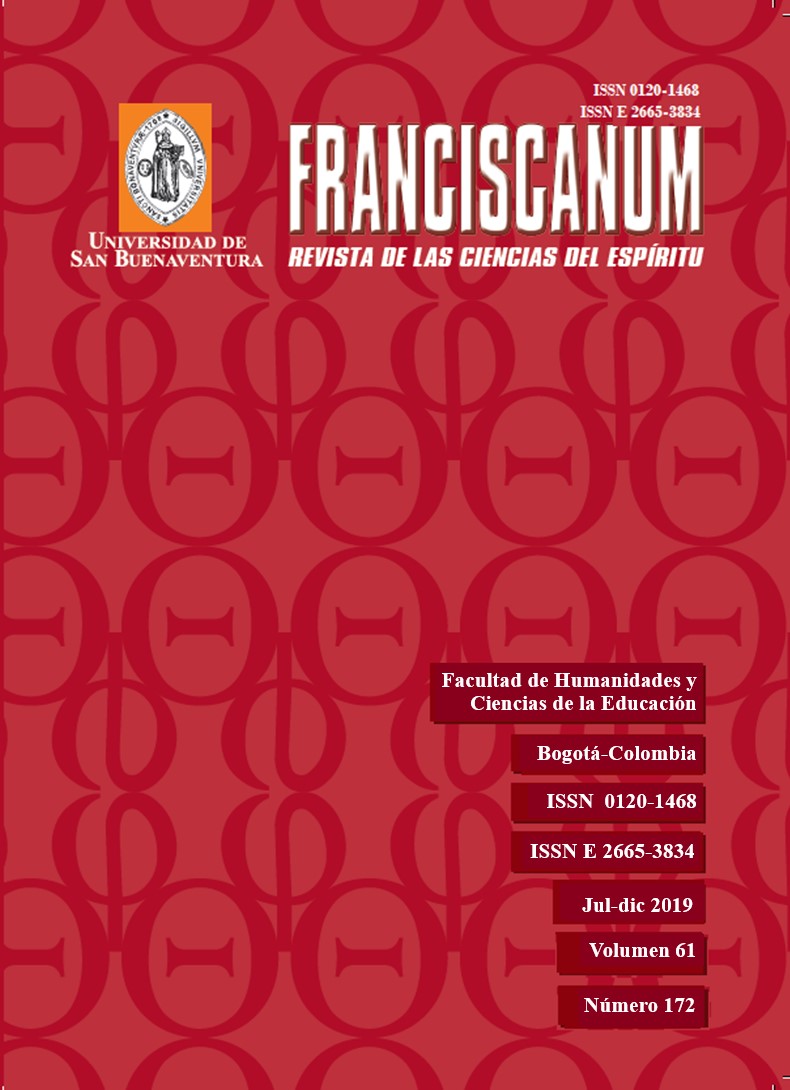This journal provides immediate open access to its content, based on the principle that giving the public free access to research helps a greater global exchange of knowledge.
Therefore, the Creative Commons 4.0 Attribution Attribution - Equal Share (by-sa) License is accepted: The commercial use of the work and the possible derived works is permitted, the distribution of which must be done with a license equal to that regulates the original work.
http://creativecommons.org/licenses/by-sa/4.0/
Along these same lines and in line with the Open Access policy, it is clarified that the authors maintain their rights to articles, without restrictions and, in the same way, they maintain their publication rights, without restrictions. They are only asked to reference the number of the Franciscanum magazine where the article initially appeared.
Abstract
This paper presents as a comparative distinction distinction for comparison the essential notes of the analysis realized by Enrique Dussel’s in his « early work » about the «Semitic Huma nism» (1969) and the «Hellenic H umanism» (1975). Firstly, it presents the perspective from which Dussel understands the «Hellenic humanism» Secondly, it systematizes the Dussel's analysis about the anthropological configuration of Hebrew people. Thirdly, it analyze the way t hat the paradigms of the Exodus and the «Yahwah Servant» become prolific theoretical categorical frameworks to think practically about the processes of political economic liberating service ( ('avodáh עֲבוֹדָה The «generative topic» of the three sections is the type of relationship between «singular community» in terms of political a nd anthropological constitution) and the transcendence's conception that presents each anthropological configuration an alyzed.



















